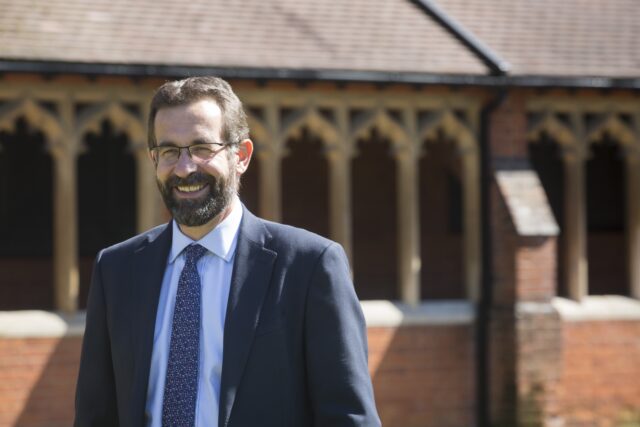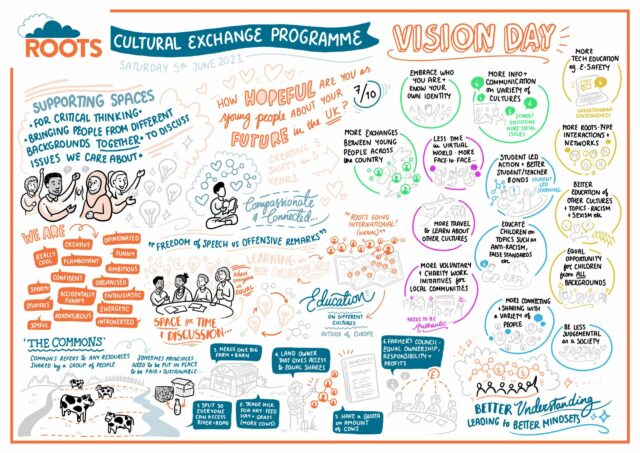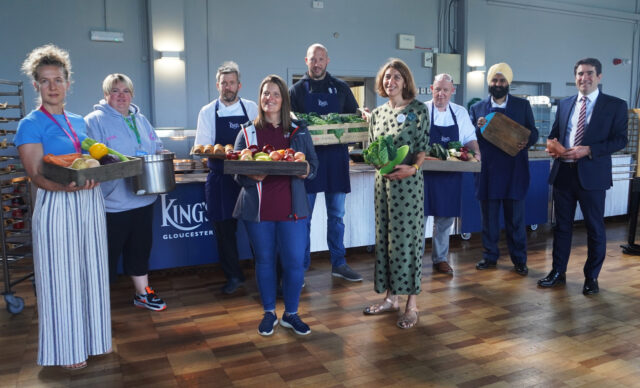Blog
The charitable status of independent schools

Richard Backhouse
HMC Chair 2021-22 and Principal, Berkhamsted School
Read the blog
Those that choose to teach join the profession for different reasons: an inspirational teacher whilst growing up; a love of subject; following in their parents’ footsteps; a desire to lead social change; a keenness to challenge perceptions or develop minds.
Whatever the motivation – all teachers agree that the importance of a high-quality holistic education cannot be understated. The disruption to education so many young people have experienced during the last 18 months has only raised the importance of this work, making the Labour Party’s announcement to remove the charitable status of schools and the addition of VAT even more frustrating, for a number of reasons.
- It won’t work
Sir Kevan Collins, as education recovery tsar, called for the Government to invest £15bn in education to mitigate the impact of the pandemic. The Labour Party rightly held the Government’s feet to the fire over Sir Kevan’s important report and recommendations. So, it is all the more frustrating to see the Labour Party advocate for a policy that will put additional strains on the state-maintained sector, tax learning and may well force a number of excellent schools to close. This is a policy with no winners – only losers.
VAT on school fees is likely to see a significant number of children move from the independent sector to the state sector. This is not only disruptive to individuals’ education, but will inevitably reduce the £3.5bn the independent sector saves the Exchequer. Any additional revenue the Shadow Chancellor expects from this policy will be dwarfed by the increased cost of those children joining state schools (and the additional taxation that may be needed to meet this cost).
The £420m of bursaries and scholarships provided to students every year in independent schools will come under significant pressure as Governing bodies seek to balance financial necessity with their determination to provide access to their schools. The result will be more pupils moving to state schools, putting further strain on class sizes and admissions policies in them.
Research by Baines Cutler has shown that removing the charitable status of independent schools would not yield the amounts Sir Keir Starmer hopes for, but would instead end up costing the taxpayer at least £416m by the policy’s fifth year. Schools as businesses would become eligible for VAT recovery and fewer pupils means lower tax receipts. It seems unlikely that the average taxpayer wants to pay more tax to change legal arrangements for private schools.
- It would damage the significant financial impact of the independent sector
According to the most recent Independent Schools Council economic report, the sector contributes £14bn to the UK economy every year, supporting more than 300,000 jobs and contributing more than £4bn in tax revenues.
The stereotype of the certain nationally renowned independent schools is not typical. Some schools (already suffering after the pandemic) will go out of business if their tax burden increases – the taxes they currently pay via PAYE, business rates, VAT (since schools currently can’t reclaim the VAT they pay) will be lost. The average independent school has fewer than 300 pupils – very few conform to the stereotype and instead are medium-sized and long-established institutions, working on tight budgets, with the aim of providing an excellent education.
- HMC schools are not for profit
Whilst the definition of a charity is steeped in legal jargon, independent schools have charitable status because they advance education and provide public benefit. 100% of HMC schools are involved in partnerships with state schools, social organisations or nearby sports clubs and provide real, tangible benefits to their local communities. Whilst the cost of these activities is unquantifiable, the obligation to provide public benefit is often part of schools’ DNA. None would welcome the necessity to reduce bursary provision, to cut partnership work with state schools , or to limit sponsorship of academies and MATs which sees the transfer of expertise from independent sectors to state schools will stop. Collaboration across the state-private school divide, now common, will come under significant strain. Social capital can but be diminished by these changes.
None of the consequences of this policy move will benefit any pupils at state schools, but state schools will be presented with significant problems. It’s likely that some will see additional help they receive in extracurricular activities from the independent sector cut back and they will have more pupils to accommodate in existing premises. Class sizes will rise. In this context, a preference for VAT on school fees rather than the conversation which independent schools have offered to have about more free places for able pupils seems unfortunate.
As HMC Chair for 2021-22, I would welcome the opportunity to discuss, with politicians of all parties, the damage this proposed policy would bring upon all schools in the UK and how we can all work together to provide all our country’s children with a great education.


